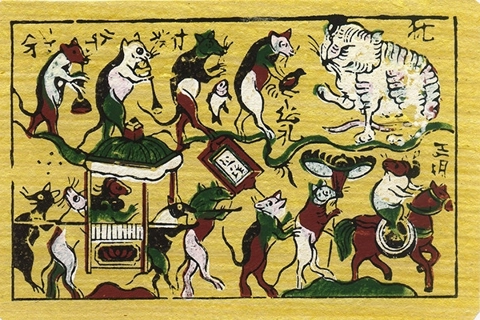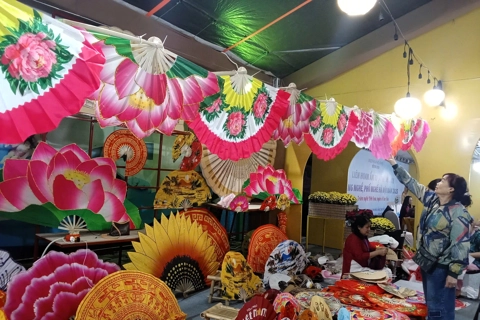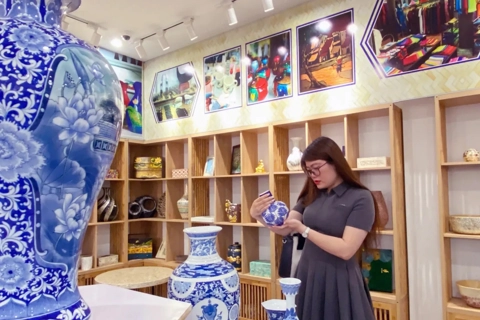Egg Beer: Hanoi’s unexpected winter comfort in a glass
From a passing whim in a Steinbeck novel to a signature indulgence in Vietnam’s capital, egg beer has evolved into a cultural touchstone, blending heritage, creativity and the unmistakable charm of Hanoi’s beer culture.
16 Dec, 11:27 AMHanoi’s Traditional Craft Village, Street Food and Tourism Festival attracts 30,000 visitors
The festival seeks to boost tourism in Hanoi while showcasing the Vietnamese capital as a welcoming, safe and cultural destination.
15 Dec, 07:20 PMDazzling festive scenes light up Hanoi’s shopping malls
As the year draws to a close, a gentle Christmas spirit drifts through Hanoi, turning the city’s shopping malls into glowing festive landmarks.
15 Dec, 10:56 AMHanoi in winter through its flavors and calm streets
Hanoi in Autumn unfolds through its rich culinary landscape, from iconic pho shops to West Lake’s shrimp cakes and the bustling street food of the Old Quarter. Blending flavors, culture and local stories, the city offers visitors a sensory journey where food becomes a gateway to its heritage and timeless charm.
15 Dec, 10:28 AMWalking through Hanoi’s craft and culinary heritage
Hanoi’s heritage comes alive through flavors, craftsmanship and living traditions at the ongoing Hanoi Traditional Craft Village, Street Food and Tourism Festival in 2025.
14 Dec, 08:16 AMDong Ho folk paintings come alive on stage after UNESCO recognition
A new student-led performance brings Dong Ho folk paintings from paper to stage, opening fresh dialogue on how young people can safeguard and renew heritage after UNESCO recognition.
13 Dec, 04:56 PMHanoi weekend stroll: Exploring cuisine and traditional craft villages along pedestrian street
The annual festival offers a convergence of culture, cuisine and creativity, transforming the West Lake’s lakeside promenade into a lively destination for residents and visitors alike.
13 Dec, 04:14 PMInteractive heritage routes bring Hanoi’s ancient stories to life for global tourism
Hanoi introduces four digital heritage itineraries using interactive maps and the H-Heritage app, offering travelers a rich cultural experience rooted in traditional beliefs and historic relics.
13 Dec, 01:05 PM








